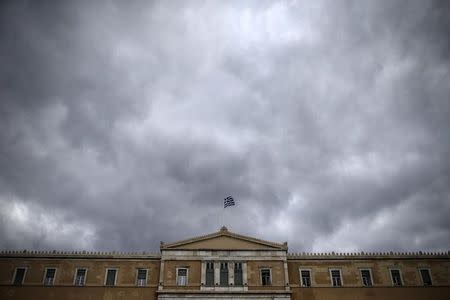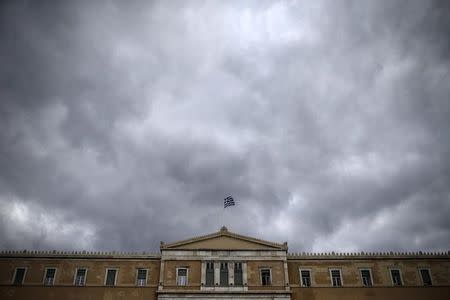EU's Moscovici says Greece showing signs of progress, with caveats
By Renee Maltezou and Lefteris Papadimas
ATHENS (Reuters) - European Economics Commissioner Pierre Moscovici said on Tuesday bailed-out Greece was showing signs of progress in its reform efforts, but said 'three or four' issues would need to be resolved in talks with Athens.
Moscovici, visiting Greece, did not identify the issues but Greece and its creditors are known to be at odds over how to resolve non-performing loans weighing on the banks and on finding additional sources of revenue.
Those disagreements are standing in the way of Greece receiving a three-billion-euro sum outstanding from an initial tranche of aid worth 26 billion euros (£18 billion). Greece's total bailout amount is up to 86 billion euros.
"I can confirm three or four issues that are still on the table," Moscovici said after talks with Greek Finance Minister Euclid Tsakalotos. "We are confident that in the spirit of a compromise the euro group meeting on Monday is a success," he added, referring to a meeting of euro zone finance ministers who will vet whether Greece has met conditions to unlock the outstanding amount.
Two of the three billion outstanding is contingent on Athens finalising a mechanism on dealing with soured loans which mainly affect mortgage holders. An additional concern is how the country can find 300 million in revenue Greece initially said it would receive from taxing private education, but then relented.
"The household insolvency law is top of the list ... and it is difficult," a source close to the talks told Reuters.
Greece is trying to juggle the need of banks to come up with a framework to deal with bad loans weighing on their books with assurances that any action should not compromise thousands of homeowners who are late with mortgages.
Greece says foreclosure protection should apply in cases of a property value of at least 200,000 euros. Creditors want it to kick in at a value of about 120,000 euros.
It should have that solvency framework in place before banks start a recapitalisation process expected to wrap up by the end of the year, one banker, who requested anonymity, said. "It would not be attractive to private investors' otherwise."
In a health check of Greece's four systemic lenders last weekend, the European Central Bank said the banks needed to plug a 14.4-billion-euro capital shortfall under an adverse economic performance scenario, and 4.4 billion under a baseline scenario.
The problem is partly caused by its high level of non-performing loans.
Athens is also trying to extricate itself from a 23 percent tax on private education, a move it signed up to with lenders but later found was highly controversial in a country where parents supplement perceived shortcomings in the state education system with extra tuition.
"We are considering, but its not final, to impose a small tax on gaming which will burden the players," a government official said.
(Writing by Michele Kambas; Editing by Janet Lawrence)




